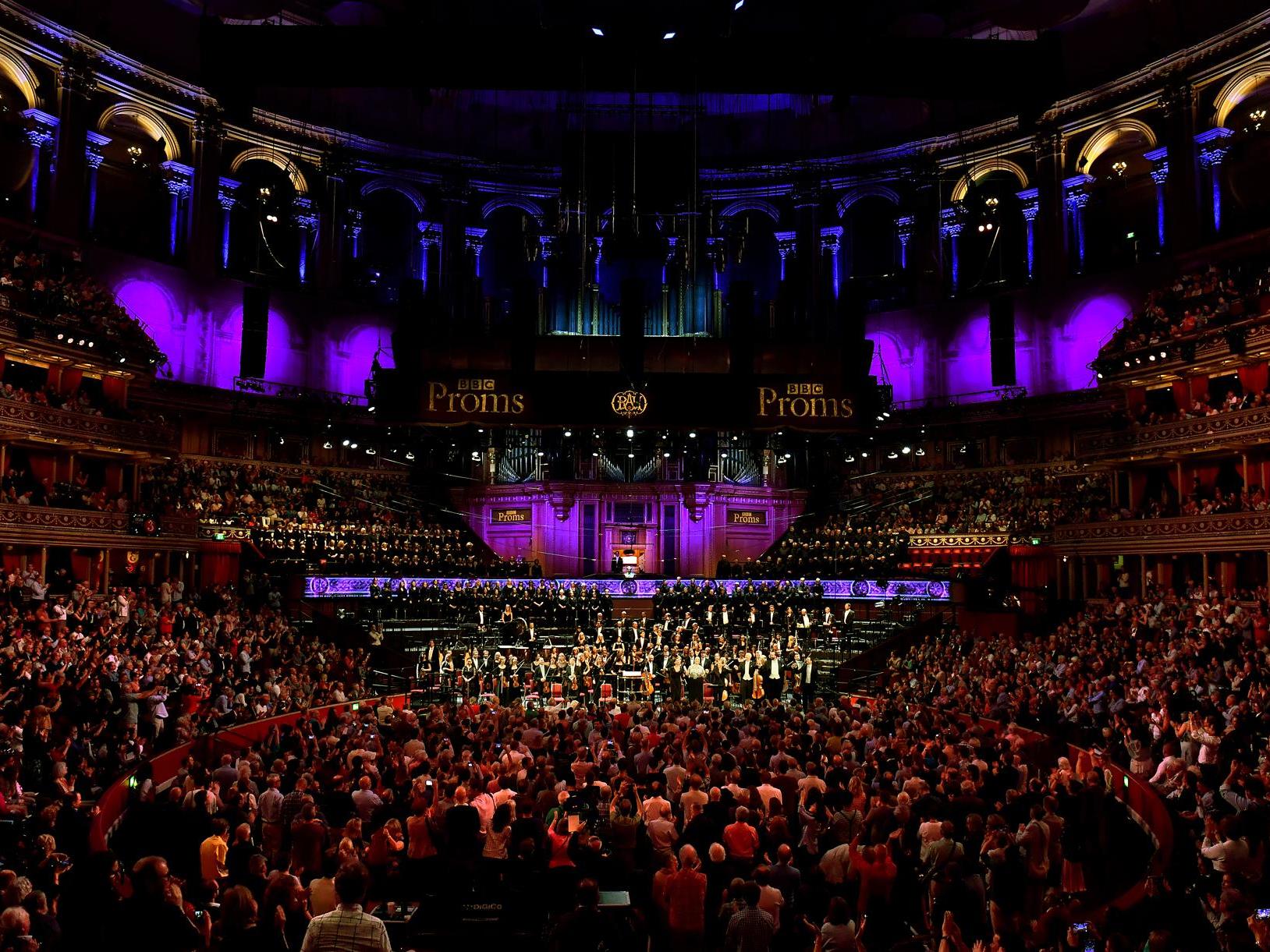BBC Proms, review: First night is a finely nuanced success
The combined forces of the BBC Singers and the BBC Symphony Chorus come through triumphantly

Your support helps us to tell the story
From reproductive rights to climate change to Big Tech, The Independent is on the ground when the story is developing. Whether it's investigating the financials of Elon Musk's pro-Trump PAC or producing our latest documentary, 'The A Word', which shines a light on the American women fighting for reproductive rights, we know how important it is to parse out the facts from the messaging.
At such a critical moment in US history, we need reporters on the ground. Your donation allows us to keep sending journalists to speak to both sides of the story.
The Independent is trusted by Americans across the entire political spectrum. And unlike many other quality news outlets, we choose not to lock Americans out of our reporting and analysis with paywalls. We believe quality journalism should be available to everyone, paid for by those who can afford it.
Your support makes all the difference.You can have too much of a good thing, and you can definitely have too much of the 1969 moon landing. The BBC’s wall-to-wall moon-mania has done no favours to Zosha Di Castri’s Long is the Journey, Short is the Memory, which is the Beeb’s specially commissioned way of musically commemorating that event: we’ve all been mooned out before the first notes are sounded.
Yet those first notes are interesting, as though an orchestral kaleidoscope is gently shaken; Di Castri has a delicate touch with textures, and as the piece unfolds it seems to hang together in space, gracefully suspended. But there’s also another problem. This is a choral-orchestral setting of three pieces of poetry reflecting how humans have looked at the moon from moments far apart in time and place. The poems are lovely, but from where I’m sitting in the stalls I can’t catch a word, and there are no surtitles. Thus shorn of its literary raison d’etre, the work has to get by purely as sound. That it does so, is thanks to Di Castri’s skill as an orchestrator, and to the BBC Symphony Orchestra, two BBC choirs, and Karina Canellakis’s finely nuanced work on the podium.
Next comes Dvorak’s The Golden Spinning Wheel, composed in 1896 but only getting its Prom premiere now. It’s a symphonic realisation of a Czech folk ballad, a charming pastorale evoking dances and high drama as well as the act of spinning, and the orchestra does it proud. The evening rounds off with Janacek’s Glagolitic Mass in which soprano Asmik Grigorian and tenor Ladislav Elgr shine very brightly. Set in old Slavonic, this is a fiendishly difficult work for the chorus to sing – I speak from recent experience – with shifts in rhythm and tonality which are dizzyingly fast, but the combined forces of the BBC Singers and the BBC Symphony Chorus come through triumphantly. The whole work is like a conflagration, glowing dully, roaring thunderously, and shooting out angry tongues of flame before resolving itself in an ecstatic “Agnus Dei”.
And with this we are off on another Proms season. Aspects of the programme, which is full of nods to current fads, won’t delight everybody. The non-classical quota – at least 10 of the 83 concerts – is creeping steadily up. “Multi-genre” is how the BBC describes this policy, and it spans Afro-pop to jazz, hip hop to electronic music, plus Radio 3’s new discovery, “meditative listening” (as though the meditative music of Arvo Pärt had never been in high fashion). This year’s CBeebies Proms begin with a musical trip to the moon with the sparky Chineke! BME orchestra, and the family-listening strand continues throughout the season, as does the emphasis on women composers and performers.
But this orgy of virtue-signalling conceals two retrograde steps. The first is that the excellent policy of taking the Proms out of central London – which two years ago saw one happening in Hull – has now evaporated. The second concerns a subject I have ventilated about for longer than I care to remember, but, given the prospect of well-heeled little-Englanders in power again, it must continue to be raised. This year, apart from a late-night concert marrying the Malian kora with Italian trance music there is no acknowledgement of music beyond the borders of Europe and America. There used to be a regular “world-music Prom”, but now even that has gone.
Yet Britain is still – for the time being at least – a multi-ethnic country. When will the Proms shake off their insularity, and take this fact as their cue to present the sophisticated classical musics of the wider world?
Join our commenting forum
Join thought-provoking conversations, follow other Independent readers and see their replies
Comments